Young Syrians’ Participation in Public Life Rises



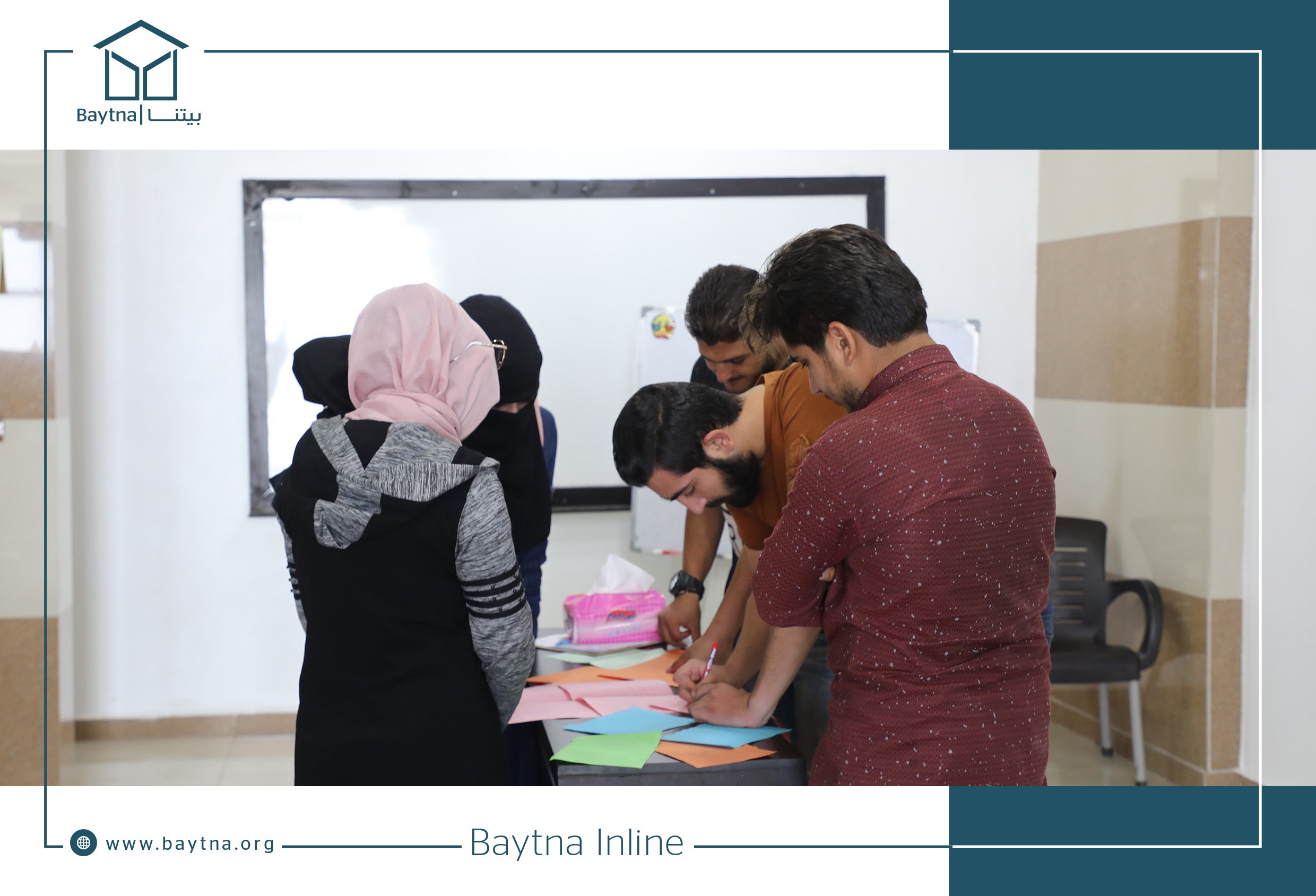

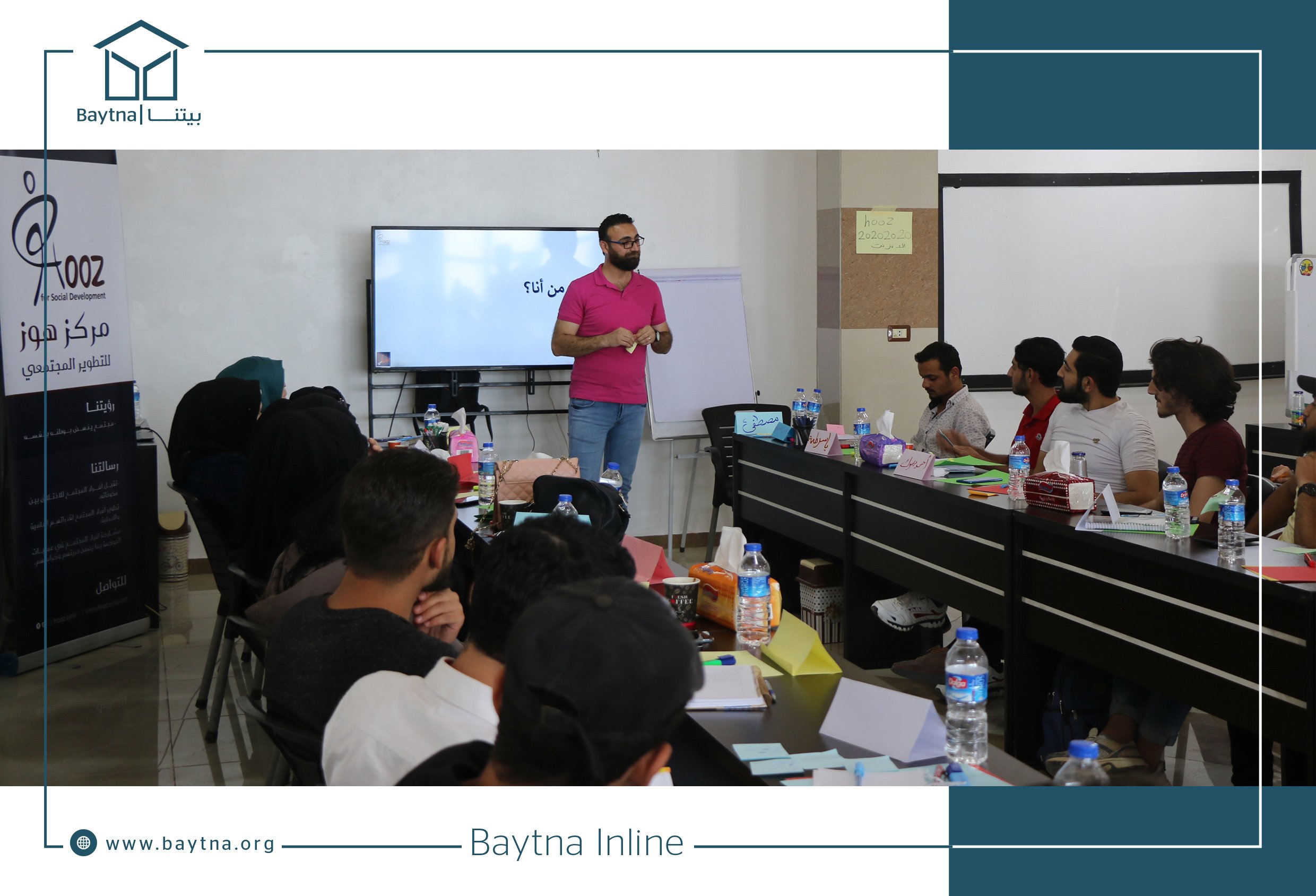

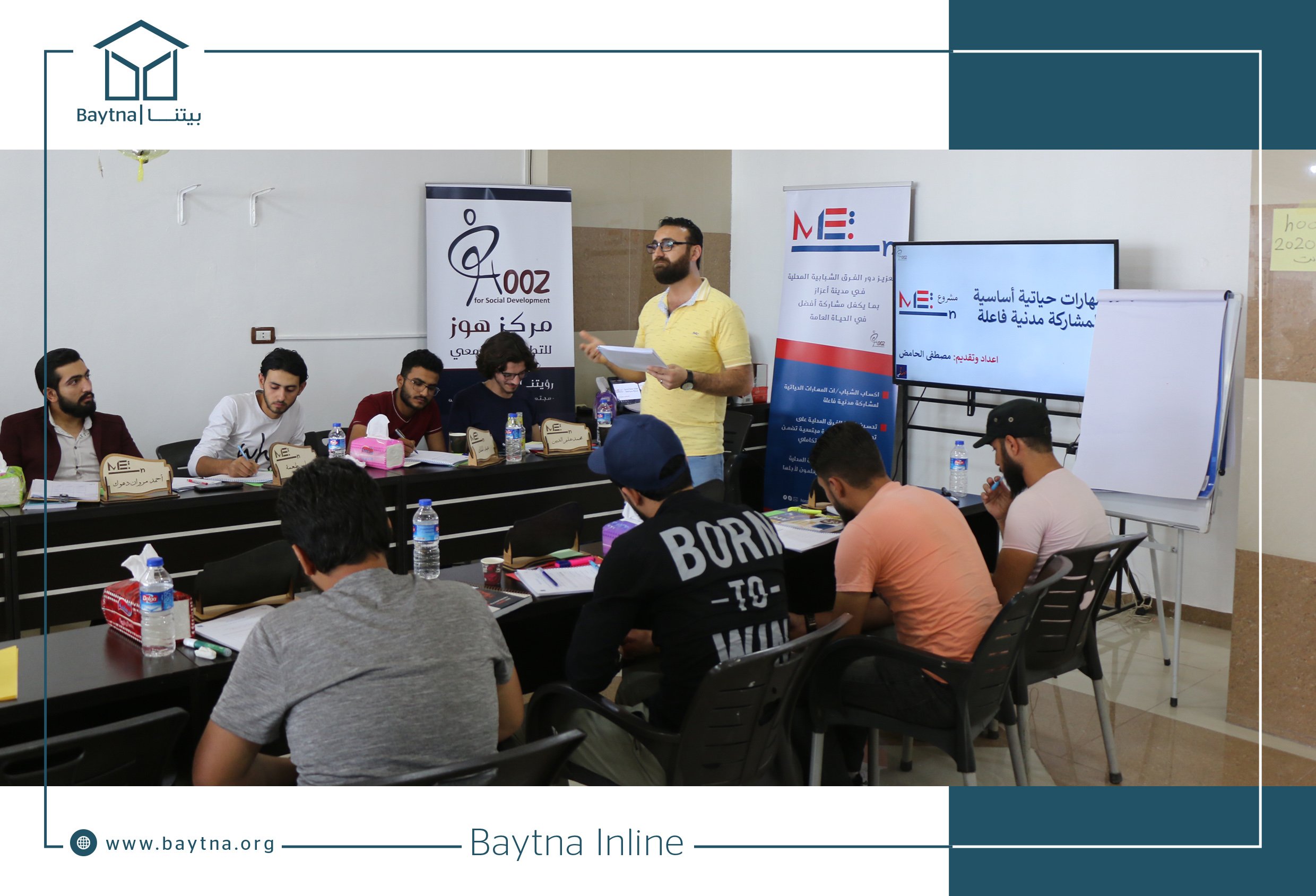


July 20, 2022 - Baytna’s recent support for the Hooz Center, established in 2016 in the cities of Azaz and Al-Bab in northwestern Syria, has shown that programs with young men and women are increasingly popular in some areas of Syria. With six managers and 17 employees, Hooz works on raising the level of participation of young men and women in public life, through various initiatives.
Hooz’s "Citizenship" program enabled spaces to learn about common citizenship issues among youth groups, volunteer teams, institutions, and local councils. Participants learned about the basic relationship between citizens and the state, their rights and duties, equality and equal opportunities, participation in public life, and loyalty to the homeland.
Participants in one of the Antame workshops in Azaz
With its follow-up "Development" program, Hooz pushed the citizenship notion to include voluntary work for civil society, and to expand young people’s understanding of civic duty. This entailed workshops that covered policy development and strategic planning, while strengthening relationships and developing better social and professional relations between young participants. One of the initiatives resulting from these trainings was a campaign to provide appropriate spaces for displaced students to study, obtained by soliciting the cooperation of local institutions in both Azaz and Al-Bab.
Trained teams also met with and surveyed nearly 300 women living in camps to better understand their needs, and to improve their situation by working with other local civil initiatives.
To wrap up this citizenship-focused drive, Hooz held its “Think” program, creating opportunities for people from several groups to work together on more intellectual and legal issues. Under this phase of the project, organizers conducted several cultural, intellectual, and artistic activities, and established two libraries in Al-Bab and Azaz initially containing over 1,200 books.
The Hooz Center has also focused on practical capacity building in a number of areas, such as the “Antame” project (a play on the words “I belong” and “you are me”) that offers training in office skills and various other human resources related fields. For its Executive Director, Anas Al Rawi, "this project made us closer to young people and more understanding of their needs and reality. We learned how to plan in a more inclusive way to work with vulnerable and marginalized groups in all sorts of activities.”
In its first phase, “Antame” gave teams of young men and women 60 hours of various life and professional skills trainings.

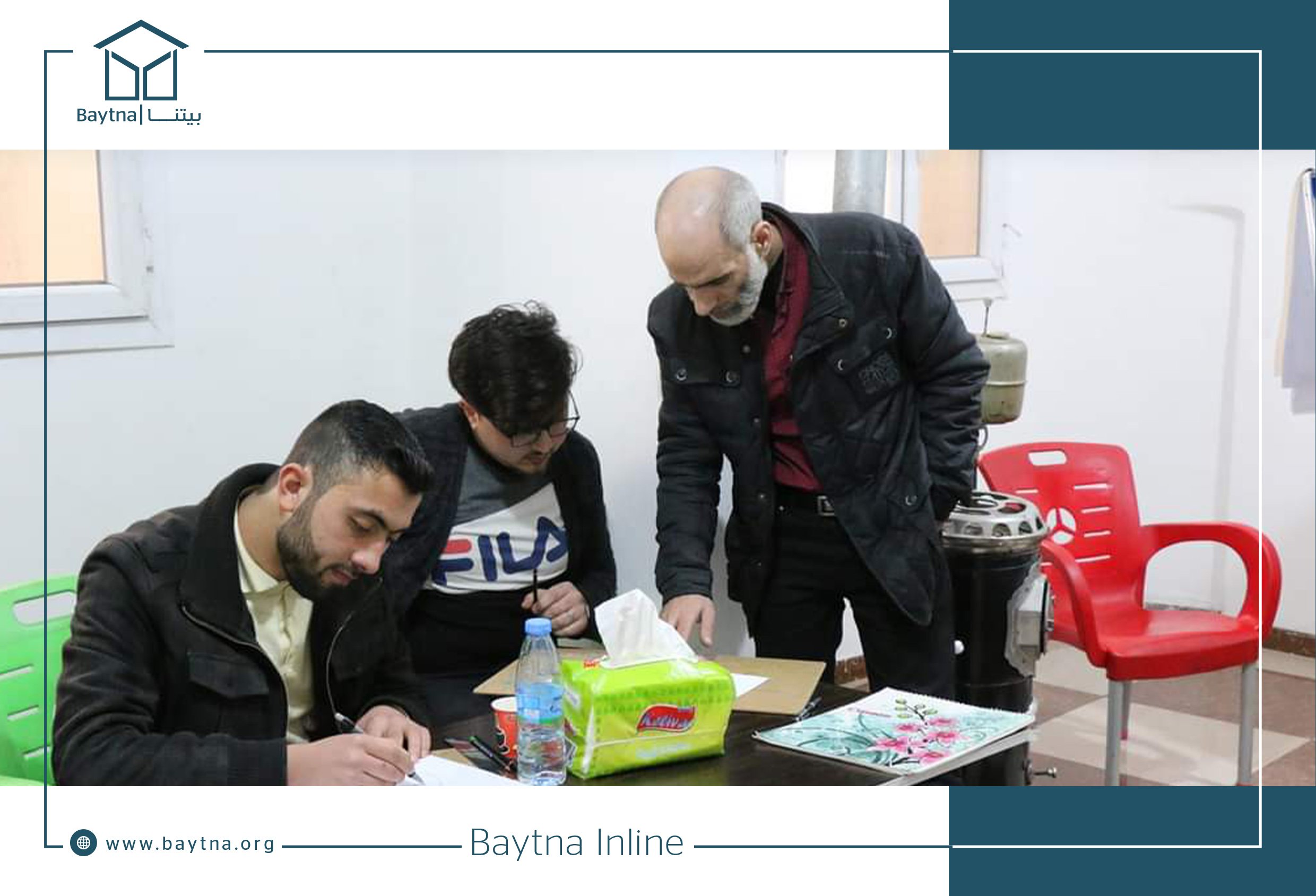

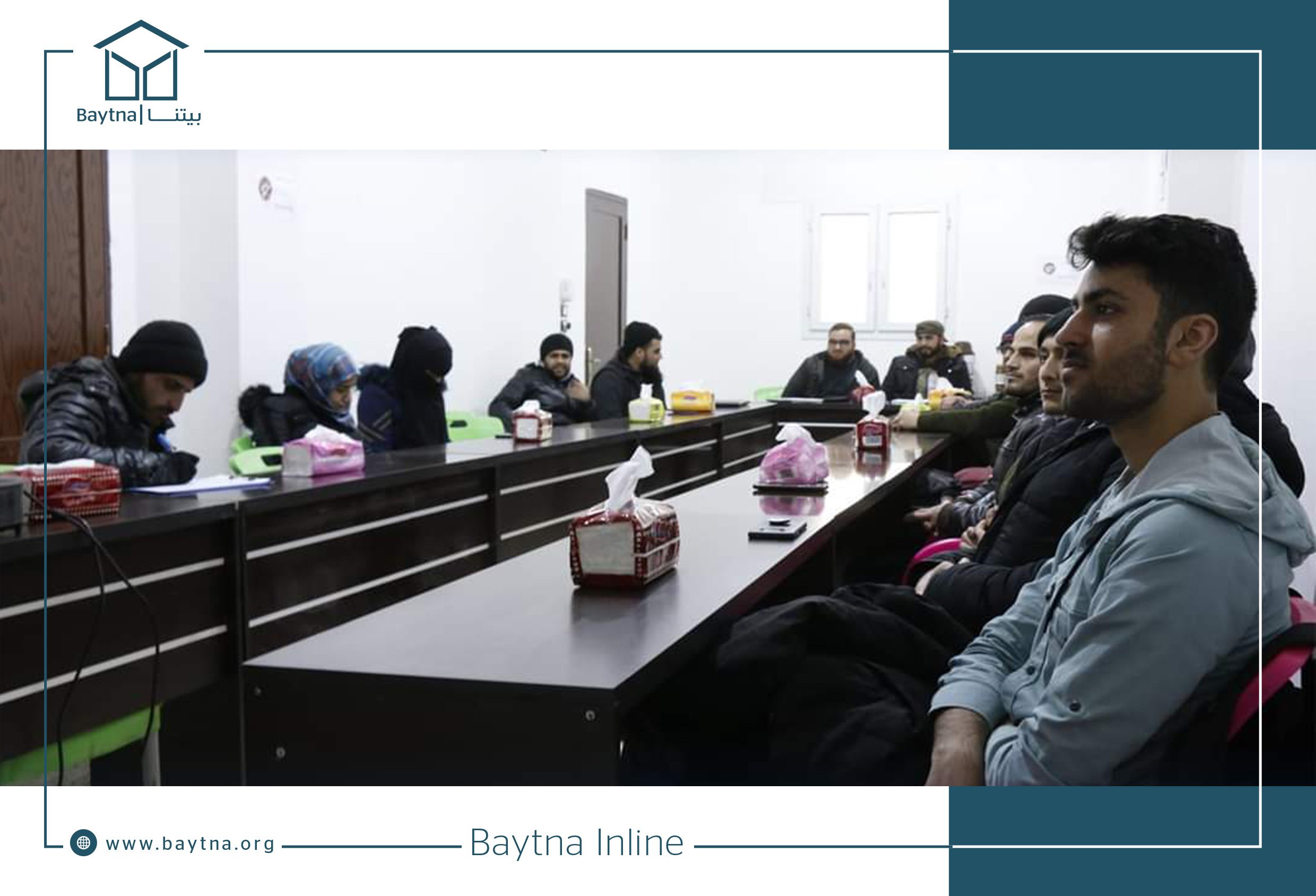

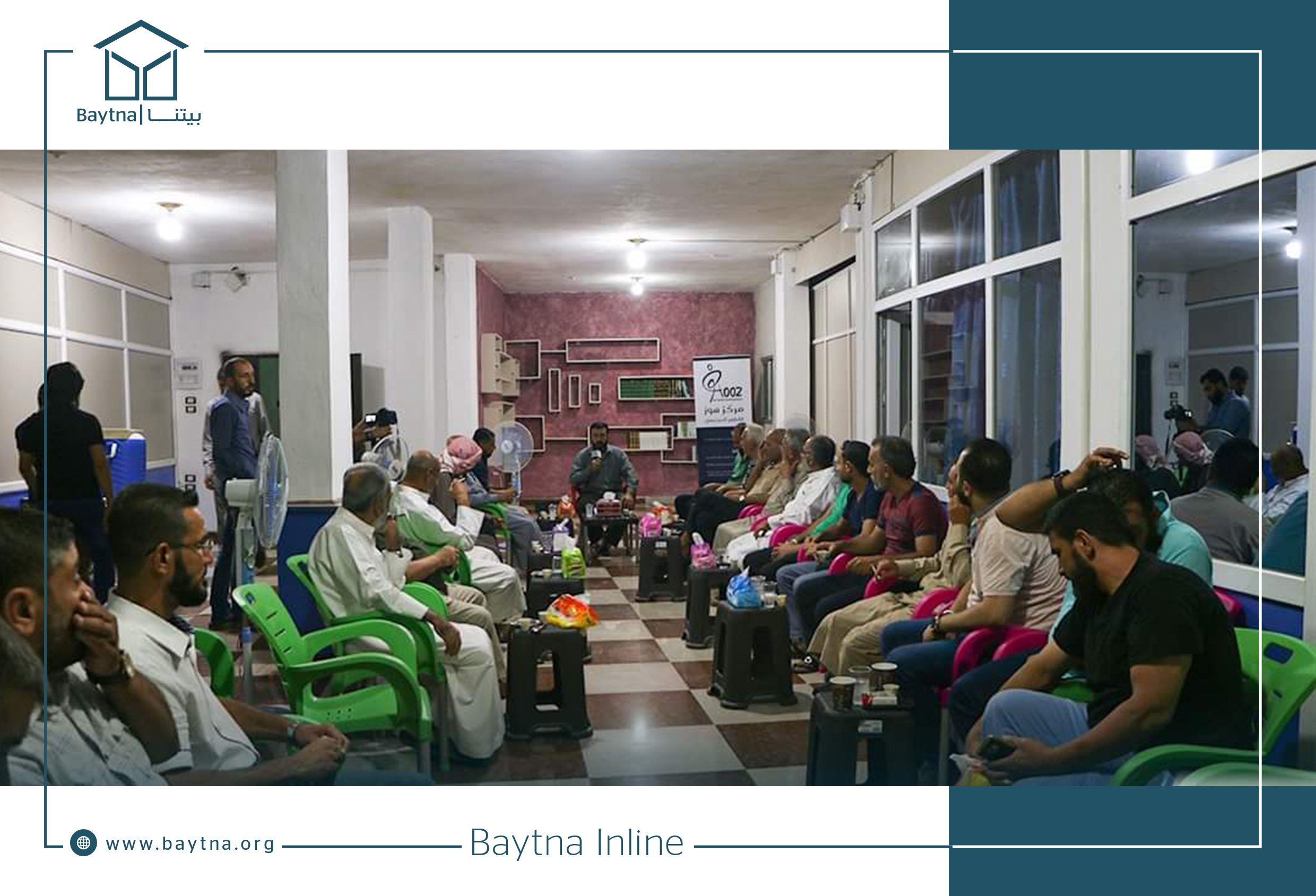

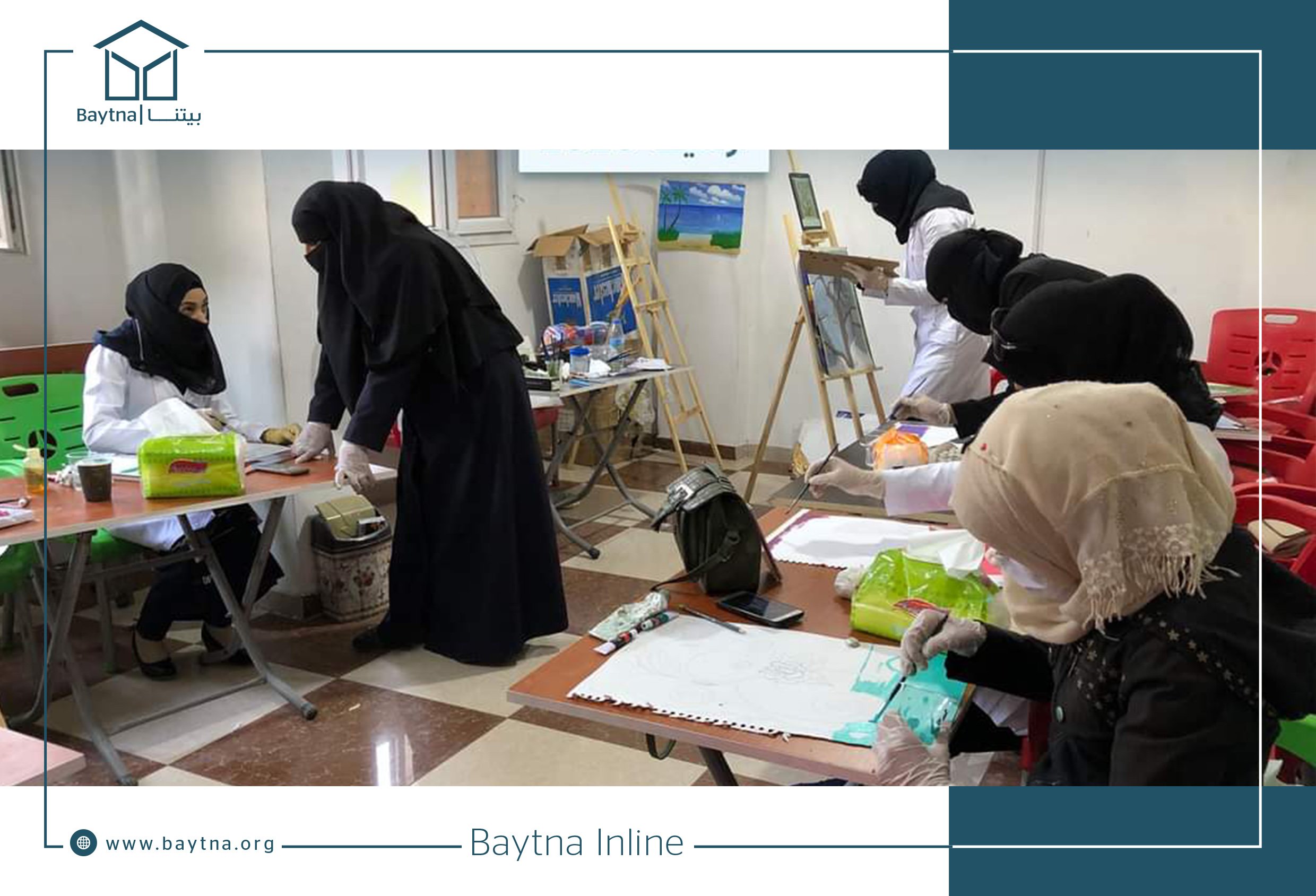
This was followed by community capital building, teaching volunteer teams how to invest in local resources – both human and environmental. During that stage, some teams engaged with pharmacies and hospitals to facilitate and improve treatment for people with disabilities, and others engaged with local institutions to facilitate access to them.
As a final step in that project geared towards belonging to the community, participants were trained for 25 hours in advocacy and outreach, including in writing proposals for advocacy campaigns such as supporting the right of people with disabilities to determination and public participation, and greater engagement in their communities. Pluto was another such campaign, highlighting students' right to an internationally recognized education. The campaign "My Place is Not Here" raised awareness on child labor. With "Beautifying Our Universities," teams of volunteers explained the need of providing sustainable environments for students, and began planting trees on several university grounds in both cities.
Several initiatives have grown out of the Antame project, demonstrating once again the needs and the benefits of empowering Syrian civil society at all levels. One of them is Khatwa, an association that continues to work with some active civil society organizations in the region following its Baytna-supported trainings. Its main objective has been to continue enhancing the participation of people with disabilities in public life; Khatwa has already developed good regional relations and has obtained more funding for its inclusive work.
"The Antame project has changed my life for the better. It was my window to engage in civil society properly, allowing me to to know myself and my capacities better, and getting me to meet a large group of people who are still among the best I got to know," said Oqba Hadbeh, one of the participants.
Projects like these, and others that Baytna supports to help empower civil society, have consistently shown that when young Syrians are offered opportunities to participate in public matters that concern them, they are eager they are to take them and to engage with their communities.


